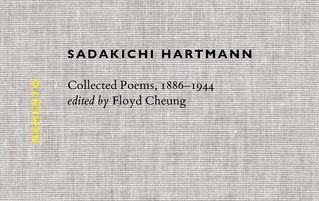‘The Glutton’s Daughter’ by Sinéad Wilson
-Reviewed by Afric McGlinchey–
Wit and clarity are two words I’d associate with Sinéad Wilson’s chapbook, The Glutton’s Daughter. Her opening poem, a sonnet, reflects the formality of religious rituals through the ‘litany of quiet names: altar, vestment/chancel, nave’, in a poem where the adolescent speaker hopes ‘for something bordering on proof from the young vicar/or the older kids, nibbling custard creams in the break’. But the closest she comes to faith is when she observes, over a period of weeks, ‘Tom’s un-squeezed whiteheads….inching down the gospel of his cheeks.’ For all the crisp word selection and tight lines, she maintains a lightness of tone that is refreshing and credible, while the objects of this poem give it a reassuring solidity. It is a well-chosen first poem, as the theme of communication, bodily references, and the ‘ink-streaked photostats’ link to the poems that follow.
‘Memories of Berwick Street and Dyfrig’ vividly describes recollections of a neighbourhood where children communicate using ‘yoghurt-pot-and-string telephones’ while ‘ladies in balconettes and underwireds/lean out on sills to smoke and try to catch your eye.’ Again, humour is evident, as Shakespeare’s Merchant of Venice is invoked: ‘I speculate the value you’d put to my pounds of flesh’. When the ‘you’ of the poem names one of the women Portia, she asks, ‘Portia as in Shakespeare?’ ‘No,’ comes the answer: ‘Portia, as in the car.’
The poems are beautifully arranged, moving from the balconette bras to a wonderfully wry ‘found’ prose poem about a bedroom view. Wilson has an eye for the quirky detail, and also for connections:
‘Once they saw Bardot marry Jourdan/twice in one afternoon,’ she says of two small boys who hold hands outside a church in Fonataine. This image of the hand-holding boys is echoed in the final line: ‘Fontaine left in the hands of two small boys’.
‘The Anatomy of the Poem’ describes how the speaker tries to penetrate her lover’s dream, after he utters a phrase in his sleep. She imagines he’s ‘lolling in an Oxford punt,/the lunch of drumsticks, tartlets, the chilled/white burgundy, the emptied hamper/a cushion for your lazy head…’ Her attention to detail is beautiful: ‘there’s a boater tipped to a squint/at the bridge of your nose, so you don’t see/the friend in cricket whites drive down his pole/to the river bed, then with a suck, kick off/and climb it, hand under hand, up out again.’ Only someone certain of her craft could get away with so many prepositions – down, off, under, up, out – in three lines.
Poems continue to talk to each other, even with the merest of connections. The next poem contains a couple, and wine, and further recollection: ‘down the descending scale of years,/you can now disclose how her voice/tightened your pubescent grip/and pulled you, groin-first, closer/to your partner’s stiff propriety.’
In another imaginative leap, Wilson adopts the voice of a cynical American forties crime detective in ‘Le Film Noir,’ ‘with just a wisecrack, a license, a loaded .38’ who sits in his office, nursing ‘a pint of bourbon on my desk/until someone spills their guts’. All the clichés of the film noir come together to recreate the black and white world of ‘the mad, the drunk, the grifters’ guns’.
In ‘Cape Farewell, Greenland,’ the speaker, feeling a pang for ‘whatever home means’ asks, ‘Why did we come?’
The symbolic value of objects continues to connect the poems thematically, as fabrics are named in ‘Mourning Dress’, and linens appear in ‘Removing the Ring’, where starched Egyptian cotton is folded, like origami, into a sailing boat ‘in the small of this last night’ so ‘he’s left without a doubt.’ This poem, like the origami folds described, is tightly restrained with rhymed line endings.
‘The Glutton’s Daughter’, a dramatic monologue, beautifully evokes the bitterness of a woman past her youth and beauty, who once modelled for Toulouse Lautrec and Degas, and who claims, ‘I could still turn to anything – landscapes, still-lives, sea views,’ but clearly hasn’t. In a strangely similar poem, the magical and quirky ‘Twenty to One’, an eccentric and we assume retired, dog takes himself back to the track, alone, where he joins the race, winning one more rosette. Maybe the woman in ‘The Glutton’s Daughter’ will surprise us yet, and do something similar.
Taken together, the poems are wonderfully wry observations of the human condition: the quirky and often pointless things we do over the course of our lives. TS Eliot’s ‘J. Alfred Prufrock’ comes to mind, although these poems are much lighter and more hopeful.
Sinéad Wilson is a strong new contemporary voice and I look forward to more of her work.



